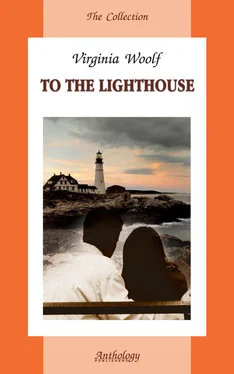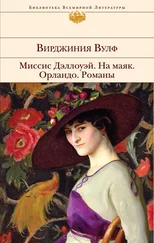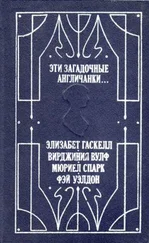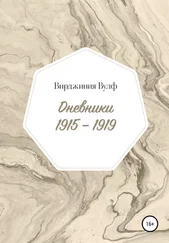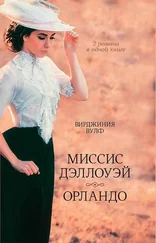Вирджиния Вулф - To the Lighthouse / На маяк
Здесь есть возможность читать онлайн «Вирджиния Вулф - To the Lighthouse / На маяк» — ознакомительный отрывок электронной книги совершенно бесплатно, а после прочтения отрывка купить полную версию. В некоторых случаях можно слушать аудио, скачать через торрент в формате fb2 и присутствует краткое содержание. Город: Санкт-Петербург, Год выпуска: 2005, ISBN: 2005, Жанр: foreign_prose, на английском языке. Описание произведения, (предисловие) а так же отзывы посетителей доступны на портале библиотеки ЛибКат.
- Название:To the Lighthouse / На маяк
- Автор:
- Жанр:
- Год:2005
- Город:Санкт-Петербург
- ISBN:5-94962-102-6
- Рейтинг книги:3 / 5. Голосов: 1
-
Избранное:Добавить в избранное
- Отзывы:
-
Ваша оценка:
- 60
- 1
- 2
- 3
- 4
- 5
To the Lighthouse / На маяк: краткое содержание, описание и аннотация
Предлагаем к чтению аннотацию, описание, краткое содержание или предисловие (зависит от того, что написал сам автор книги «To the Lighthouse / На маяк»). Если вы не нашли необходимую информацию о книге — напишите в комментариях, мы постараемся отыскать её.
To the Lighthouse / На маяк — читать онлайн ознакомительный отрывок
Ниже представлен текст книги, разбитый по страницам. Система сохранения места последней прочитанной страницы, позволяет с удобством читать онлайн бесплатно книгу «To the Lighthouse / На маяк», без необходимости каждый раз заново искать на чём Вы остановились. Поставьте закладку, и сможете в любой момент перейти на страницу, на которой закончили чтение.
Интервал:
Закладка:
“Jasper!” said Mr Bankes. They turned the way the starlings flew, over the terrace. Following the scatter of swift-flying birds in the sky they stepped through the gap in the high hedge straight into Mr Ramsay, who boomed tragically at them, “Some one had blundered!”
His eyes, glazed with emotion, defiant with tragic intensity, met theirs for a second, and trembled on the verge of recognition; but then, raising his hand, half-way to his face as if to avert, to brush off, in an agony of peevish shame, their normal gaze, as if he begged them to withhold for a moment what he knew to be inevitable, as if he impressed upon them his own child-like resentment of interruption, yet even in the moment of discovery was not to be routed utterly, but was determined to hold fast to something of this delicious emotion, this impure rhapsody of which he was ashamed, but in which he revelled – he turned abruptly, slammed his private door on them; and, Lily Briscoe and Mr Bankes, looking uneasily up into the sky, observed that the flock of starlings which Jasper had routed with his gun had settled on the tops of the elm trees.
5
“And even if it isn’t fine tomorrow,” said Mrs Ramsay, raising her eyes to glance at William Bankes and Lily Briscoe as they passed, “it will be another day. And now,” she said, thinking that Lily’s charm was her Chinese eyes, aslant in her white, puckered little face, but it would take a clever man to see it, “and now stand up, and let me measure your leg,” for they might go to the Lighthouse after all, and she must see if the stocking did not need to be an inch or two longer in the leg.
Smiling, for it was an admirable idea, that had flashed upon her this very second – William and Lily should marry – she took the heather-mixture stocking, with its criss-cross of steel needles at the mouth of it, and measured it against James’s leg.
“My dear, stand still,” she said, for in his jealousy, not liking to serve as measuring block for the Lighthouse keeper’s little boy, James fidgeted purposely; and if he did that, how could she see, was it too long, was it too short? she asked.
She looked up – what demon possessed him, her youngest, her cherished? – and saw the room, saw the chairs, thought them fearfully shabby. Their entrails, as Andrew said the other day, were all over the floor; but then what was the point, she asked, of buying good chairs to let them spoil up here all through the winter when the house, with only one old woman to see to it, positively dripped with wet? Never mind, the rent was precisely twopence half-penny; the children loved it; it did her husband good to be three thousand, or if she must be accurate, three hundred miles from his libraries and his lectures and his disciples; and there was room for visitors. Mats, camp beds, crazy ghosts of chairs and tables whose London life of service was done – they did well enough here; and a photograph or two, and books. Books, she thought, grew of themselves. She never had time to read them. Alas! even the books that had been given her and inscribed by the hand of the poet himself: “For her whose wishes must be obeyed”… “The happier Helen of our days”… disgraceful to say, she had never read them. And Croom on the Mind and Bates on the Savage Customs of Polynesia (“My dear, stand still,” she said) – neither of those could one send to the Lighthouse. At a certain moment, she supposed, the house would become so shabby that something must be done. If they could be taught to wipe their feet and not bring the beach [5] not bring the beach – (разг.) не натаскивать в дом песка
in with them – that would be something. Crabs, she had to allow, if Andrew really wished to dissect them, or if Jasper believed that one could make soup from seaweed, one could not prevent it; or Rose’s objects – shells, reeds, stones; for they were gifted, her children, but all in quite different ways. And the result of it was, she sighed, taking in the whole room from floor to ceiling, as she held the stocking against James’s leg, that things got shabbier and got shabbier summer after summer. The mat was fading; the wall-paper was flapping. You couldn’t tell any more that those were roses on it. Still, if every door in a house is left perpetually open, and no lockmaker in the whole of Scotland can mend a bolt, things must spoil. What was the use of flinging a green Cashemere shawl over the edge of a picture frame? In two weeks it would be the colour of pea soup. But it was the doors that annoyed her; every door was left open. She listened. The drawing-room door was open; the hall door was open; it sounded as if the bedroom doors were open; and certainly the window on the landing was open, for that she had opened herself. That windows should be open, and doors shut – simple as it was, could none of them remember it? She would go into the maids’ bedrooms at night and find them sealed like ovens, except for Marie’s, the Swiss girl, who would rather go without a bath than without fresh air, but then at home, she had said, “the mountains are so beautiful.” She had said that last night looking out of the window with tears in her eyes. “The mountains are so beautiful.” Her father was dying there, Mrs Ramsay knew. He was leaving them fatherless. Scolding and demonstrating (how to make a bed, how to open a window, with hands that shut and spread like a Frenchwoman’s) all had folded itself quietly about her, when the girl spoke, as, after a flight through the sunshine the wings of a bird fold themselves quietly and the blue of its plumage changes from bright steel to soft purple. She had stood there silent for there was nothing to be said. He had cancer of the throat. At the recolection – how she had stood there, how the girl had said, “At home the mountains are so beautiful,” and there was no hope, no hope whatever, she had a spasm of irritation, and speaking sharply, said to James:
“Stand still. Don’t be tiresome,” so that he knew instantly that her severity was real, and straightened his leg and she measured it.
The stocking was too short by half an inch at least, making allowance for the fact that Sorley’s little boy would be less well grown than James.
“It’s too short,” she said, “ever so much too short.”
Never did anybody look so sad. Bitter and black, half-way down, in the darkness, in the shaft which ran from the sunlight to the depths, perhaps a tear formed; a tear fell; the waters swayed this way and that, received it, and were at rest. Never did anybody look so sad.
But was it nothing but looks, people said? What was there behind it – her beauty and splendour? Had he blown his brains out, they asked, had he died the week before they were married – some other, earlier lover, of whom rumours reached one? Or was there nothing? nothing but an incomparable beauty which she lived behind, and could do nothing to disturb? For easily though she might have said at some moment of intimacy when stories of great passion, of love foiled, of ambition thwarted came her way how she too had known or felt or been through it herself, she never spoke. She was silent always. She knew then – she knew without having learnt. Her simplicity fathomed what clever people falsified. Her singleness of mind made her drop plumb like a stone, alight exact as a bird, gave her, naturally, this swoop and fall of the spirit upon truth which delighted, eased, sustained – falsely perhaps.
(“Nature has but little clay,” said Mr Bankes once, much moved by her voice on the telephone, though she was only telling him a fact about a train, “like that of which she moulded you.” He saw her at the end of the line, Greek, blue-eyed, straight-nosed. How incongruous it seemed to be telephoning to a woman like that. The Graces assembling seemed to have joined hands in meadows of asphodel to compose that face. Yes, he would catch the 10:30 at Euston.
Читать дальшеИнтервал:
Закладка:
Похожие книги на «To the Lighthouse / На маяк»
Представляем Вашему вниманию похожие книги на «To the Lighthouse / На маяк» списком для выбора. Мы отобрали схожую по названию и смыслу литературу в надежде предоставить читателям больше вариантов отыскать новые, интересные, ещё непрочитанные произведения.
Обсуждение, отзывы о книге «To the Lighthouse / На маяк» и просто собственные мнения читателей. Оставьте ваши комментарии, напишите, что Вы думаете о произведении, его смысле или главных героях. Укажите что конкретно понравилось, а что нет, и почему Вы так считаете.
